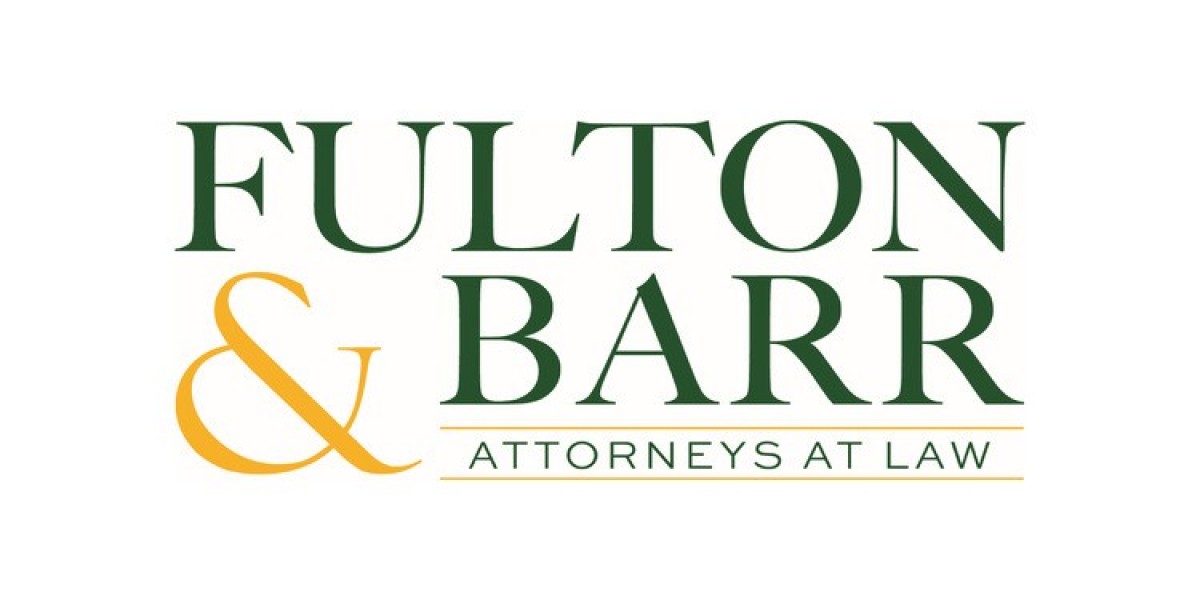Avoiding Affiliate Marketing Scams: Your Ultimate Safety Guide
Affiliate marketing can be a goldmine, especially for those who master the art of it. Yet, lurking in the shadows are scams eager to trip you up at every turn. These scams are more than just an inconvenience—they can derail your entire business venture. So, what's the key to avoiding affiliate marketing scams and steering clear of these pitfalls? It's all about vigilance and knowledge. Recognizing the warning signs, questioning too-good-to-be-true offers, and choosing your partners wisely can help safeguard your efforts. Your success hinges on knowing where to tread carefully in this dynamic industry.
Check out this useful YouTube video for more insights on how to dodge these scams effectively. Plus, explore detailed articles on Hostinger and Authority Hacker that offer further ways to protect yourself and thrive in affiliate marketing.
Understanding Affiliate Marketing
In today's digital landscape, affiliate marketing stands as a compelling avenue for many seeking to augment their income by promoting products they believe in. Yet, understanding its core mechanics can be the key to navigating potential pitfalls and preventing financial scams.
 Photo by Kaboompics.com.
Photo by Kaboompics.com.
Definition of Affiliate Marketing
Affiliate marketing is a type of performance-based marketing where individuals or companies, known as affiliates, earn a commission for marketing another entity's product. The affiliate simply finds a product they like, promotes it and earns a slice of the profit from each sale made through their unique referral link. It’s like being a virtual sales agent but with the flexibility to choose products or services that resonate personally. To dive deeper, this article on BigCommerce's Affiliate Marketing 101 provides a comprehensive overview of the affiliate marketing model.
The Role of Affiliates
Affiliates are the frontline soldiers in the marketing force. They are responsible for:
- Selecting Products: Choosing products or services that align with their brand or that they find personally interesting.
- Creating Content: Designing engaging content—like blogs, videos, or social media posts—that effectively promotes the chosen products.
- Tracking Performance: Utilizing analytics to monitor the success of their campaigns and optimize for better results.
- Building Trust: Maintaining credibility among audiences to ensure sustainable engagement.
The affiliate’s role isn't just about posting links; it involves the creation of a genuine relationship with their audience, akin to being a helpful guide through a forest of buying choices. You can learn more about successful affiliate roles in this Shopify guide to affiliate marketing.
Benefits of Affiliate Marketing
Engaging in affiliate marketing offers several notable benefits:
Low Start-up Costs: Unlike traditional business models requiring significant investments, affiliate marketing usually calls only for a small financial outlay to get started.
Passive Income: Once the promotional content is out there, money can be made 24/7 without the constant need for active involvement.
Flexibility and Convenience: Work from anywhere with just a computer and internet connection. It’s like having a business entirely in your backpack.
Performance-Based Earnings: Your income directly correlates to the power of your promotional efforts—more sales mean higher earnings.
For more insights into the advantages of affiliate marketing, check out this article highlighting the 15 Benefits of Affiliate Marketing.
With these elements clearly in view, it is crucial to arm yourself with the knowledge to sidestep common traps and scam pitfalls that litter the affiliate marketing path. Stay tuned as we further explore essential strategies for avoiding affiliate marketing scams.
Common Affiliate Marketing Scams
Navigating the vast sea of affiliate marketing can feel like sailing without a compass at times. With attractive offers and promises of wealth, it's easy to get drawn into shady deals that mislead marketers. So, let's explore some of the common scams in the affiliate marketing world and learn how to avoid them.
Fake Affiliate Programs
These programs often lure marketers with promises of high commissions and immense earnings. But here's the catch: they offer no real products or services to sell. You may find yourself signing up with the hope of striking gold, only to discover there's nothing tangible to promote.
- These scams often have shiny websites with compelling graphics.
- The offers sound too good to be true — and they usually are.
To protect yourself, ensure that the program has a real product and do some background research. Find reputable sites like Authority Hacker offering valuable tips on spotting illegitimate programs.
Pyramid Schemes
Pyramid schemes cleverly masquerade as legitimate affiliate opportunities, but instead of selling products, they rely on recruiting more people to make money. The structure depends not on sales, but on bringing in others who pay a fee to join.
- Earnings come from signing up new members, not selling actual goods.
- These schemes eventually collapse, leaving most members at a loss.
Always look for programs that emphasize product quality over recruitment numbers. Check resources like Hostinger to distinguish between genuine and fraudulent programs.
Phishing Schemes
Phishing schemes trick marketers into revealing sensitive information like passwords or financial data. These scams might present themselves as well-known platforms requiring account verification.
- Be suspicious of unexpected emails asking for personal information.
- Genuine companies rarely request info like this out of nowhere.
Guard against these tactics by reviewing emails for signs of fraud and verifying requests with the platform directly. Learn more through articles discussing phishing dangers in affiliate marketing.
Fake Reviews and Testimonials
The internet can be deceiving. Scammers use fake reviews and glowing testimonials to persuade you a product is legitimate even when it's not. Positive yet phony feedback can mislead affiliates about a product's real value.
- Reviews might be too brief or overly positive.
- They might not align with user experiences found elsewhere.
To avoid this pitfall, seek reviews from trusted third-party sites and communities. Visit eclincher for insights into spotting fake testimonials online.
Scams Targeting New Affiliates
New marketers are often the easiest targets for scams aiming to exploit their lack of experience. Often portrayed as a chance to learn the ropes, these scams only provide fluff at best.
- They promise training but deliver little substance.
- At times, they involve repeated upselling to stay involved.
Stay informed by networking with experienced marketers and using platforms that provide genuine mentorship. Websites like Forbes Tech Council can offer strategies for reducing the risk of affiliate marketing scams targeting novices.
Photo by Jakub Zerdzicki
Identifying Warning Signs of Scams
Navigating the sea of affiliate marketing can be exciting but, like any sea, there are sharks in the water. Recognizing the warning signs of affiliate marketing scams is crucial for protecting your time, effort, and finances. Below, we'll cover some of the key red flags to watch out for when you're considering joining an affiliate program.
Lack of Transparency
A legitimate affiliate marketing program should be as clear as a cloudless sky when it comes to its terms, conditions, and expectations. Imagine you're signing a contract—would you sign a blank one? Probably not. Always look for programs that provide detailed, understandable information.
- Explicit Terms: Look for clear and detailed terms and conditions read more about them.
- Available FAQs: Reputable programs often have FAQs that answer common questions.
- Open Communication: Check if there are straightforward ways to communicate with their support team.
Too Good to Be True Offers
Remember the saying, "if it sounds too good to be true, it probably is"? This couldn't be more applicable than in affiliate marketing. Offers that promise astronomical earnings with minimum effort are akin to fishing tales about giant catches—they're often exaggerated.
- Excessive Earnings Promises: A promise of excessive, effortless wealth is a major red flag.
- Lack of Effort Claimed: Be wary if they claim you'll barely have to do anything to succeed explore more here.
Pressure Tactics
Picture a salesperson breathing down your neck, urging you to "act now, or lose out forever". This high-pressure sales approach is a classic red flag in scams. Legitimate programs respect your decision-making time because they believe in their value.
- Urgency and Scarcity: Watch for language that pressures you to act immediately.
- Limited Offers: Be cautious of programs that push the idea of exclusivity or scarcity to hurry your decision.
Poor Website Quality
A well-constructed affiliate program site is often built with care and attention to detail. If it looks like it was thrown together overnight, that’s a warning sign. A website's quality often reflects the legitimacy of the business behind it.
- Basic Design and Functionality: Scams frequently have clunky, unprofessional websites.
- Look for Consistency: Check if the information provided is consistent and grammatically correct learn more.

Photo by Jakub Zerdzicki
Absence of Contact Information
It’s essential to know who you’re dealing with, right? A lack of reachable contact information is not just a slight oversight—it's a glaring sign you might be dealing with a scam. Legitimate businesses don't hide; they are open about their contact details.
- Visible Contact Information: Authentic companies will provide multiple ways to contact them, like phone numbers, email addresses, or chat options.
- Customer Support: Accessibility to customer support often signifies a legitimate operation to understand more.
By being aware of these warning signs, you can steer clear of scams lurking around in the affiliate marketing arena. Always trust your gut and don't rush into any commitments without thorough research. It's better to pause and think twice than to end up in a troublesome situation.
Best Practices for Avoiding Affiliate Marketing Scams
Affiliate marketing is a real goldmine, but some mines have hidden traps. Falling into a scam can cost you more than just time—it can cost you money and trust. Let's dive into some best practices to ensure you navigate safely through the wild terrain of affiliate marketing.
Conduct Thorough Research
Before you get started with any affiliate program, imagine yourself as a detective on a new case. You wouldn’t jump to conclusions without the facts, right? Investigate each company and affiliate program you're considering.
Look for:
- Reviews and Ratings: What are others saying? Check out sites like Trustpilot or BBB to gauge reviews.
- Online Presence: A legitimate company typically has a robust online presence. Look for articles or blog mentions.
- Customer Feedback: Listen to others’ experiences and see if they align with what the company advertises.
This detective work can save you from signing a deal with the wrong people.
Verify Company Credentials
Would you trust a doctor without a license? The same goes for affiliate marketing companies. It's crucial to verify the company's credentials to ensure they are legally operating and have a reputable standing.
Check for:
- Business Registration: Ensure the company is registered with appropriate regulatory bodies.
- Contact Information: Verify their contact details—ask yourself if they’re easy to reach and if the information checks out.
Utilize Trusted Networks
Sometimes, it's who you know that keeps you in check. Engaging with reputable affiliate networks acts like an assurance policy against scams. These networks vet companies before listing them, providing you with an added layer of security.
Trusted networks like ClickBank or CJ Affiliate are great places to start. They offer a marketplace of well-assessed and reliable programs.
 Photo by Michael Steinberg
Photo by Michael Steinberg
Read Affiliate Agreements Carefully
Imagine signing a contract only to find later that it ties you into unfriendly terms. This happens if you skip reading the fine print. Carefully comb through any affiliate agreements before signing.
Focus on:
- Payment Terms: Understand when and how payments are made.
- Rules and Conditions: Be clear on what's expected from both sides.
Knowledge is power. Don’t just skim—digest the details.
Join Online Communities and Forums
Sometimes wisdom comes not from solitary reflection but from the collective insight of a community. Joining affiliate marketing communities and forums connects you with seasoned marketers who have been around the block.
Benefits include:
- Sharing Experiences: Learn from others’ past mistakes and successes.
- Real-time Advice: Immediate feedback and guidance in complex situations.
Platforms like R/affiliate_marketing on Reddit or Warrior Forum can be a treasure trove of tips and support.
Leveraging these best practices will fortify your defenses against scams, allowing you to focus on profitable partnerships. Whether you’re just beginning or have been in the game for a while, these strategies ensure that you’re always on the right track. Stay sharp, stay informed, and most importantly, stay safe!
Reporting and Taking Action Against Scams
Imagine if someone tried to cheat you out of your hard-earned money through a sneaky affiliate marketing scam. The shocking truth is that this can happen, but you have the power to put an end to it. Taking action is crucial not only for your safety but also for protecting the entire affiliate marketing community.
How to Report Scams
When you spot a questionable activity or encounter a scam, knowing how to report it is your first line of defense. Here's what you can do:
Gather Evidence: Collect all necessary information such as screenshots, emails, and links. This helps make your report robust and credible.
Contact the Platform: Many scams occur on platforms like Amazon, ClickBank, or social media. Most have dedicated sections for reporting abuse. Also, FasterCapital provides detailed steps on reporting affiliate scams.
Reach Out to Authorities: File a complaint with the Federal Trade Commission (FTC) or relevant local authority. The FTC's quick guide on affiliate marketing explains how to protect yourself.
Notify Your Affiliate Network: Informing the network can help prevent future scams and protect others from similar fraud.
Educating Others
The community gets stronger when we share. Spreading the word about your experience can help keep fellow marketers out of trouble.
Write About Your Experience: Share your story in forums or on blogs like Reddit’s Affiliate Marketing section.
Participate in Online Discussions: Engage in discussions around affiliate marketing scams to expose new threats and learn from others.
Create Awareness Campaigns: Join hands with other marketers to run online campaigns or webinars, potentially reducing the number of future victims.
Protecting Yourself and Your Brand
Staying safe is not just about dodging scams; it's also about building a solid reputation.
Clarify Expectations: Make sure you know the rules of any affiliate program you join, like those outlined in Shopify’s guide on preventing affiliate abuse.
Regularly Monitor Activity: Keep a sharp eye on your affiliate stats to quickly detect anything unusual.
Educate Your Partners: Help your affiliates understand scam risks and compliance, by following tips from Viv Networks on brand protection.
Protecting yourself is akin to wearing a seatbelt on a rollercoaster—it might not stop the ride from being wild, but it ensures safety when things get bumpy. Scams shouldn't derail your affiliate marketing journey; instead, these experiences can strengthen your understanding and resilience.
Conclusion
Avoiding affiliate marketing scams is crucial to maintaining your credibility and ensuring profitability. Staying informed about the latest tactics used by scammers is essential.
Always scrutinize offers, check the credibility of partners, and trust your instincts. If something feels off, don't hesitate to walk away. Engage with reliable platforms and be proactive in monitoring the activities surrounding your affiliate links.
These precautions will not only protect your interests but also contribute to a healthier, scam-free affiliate marketing environment.
For additional insights or to share your experiences, drop your thoughts in the comments. Let's foster a community committed to safe and effective affiliate marketing.


